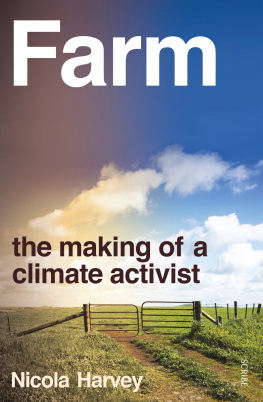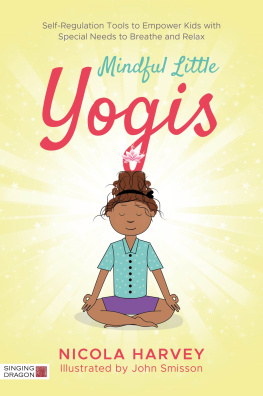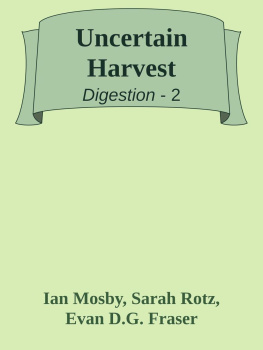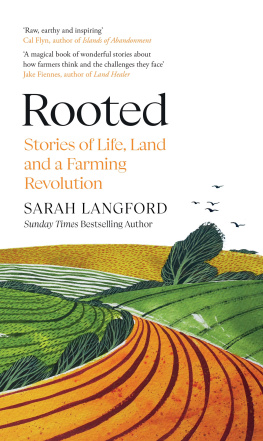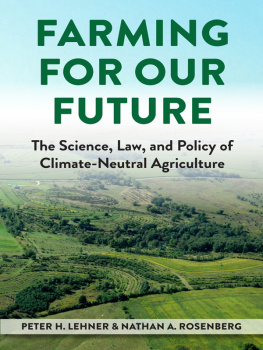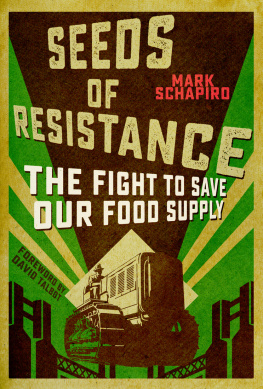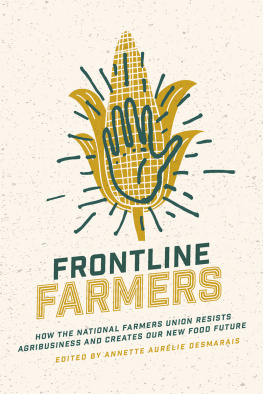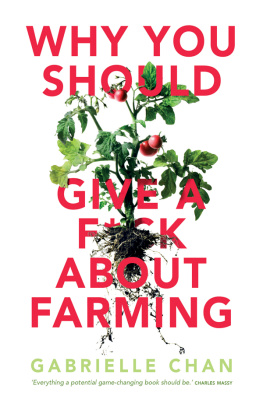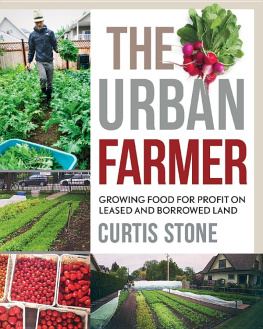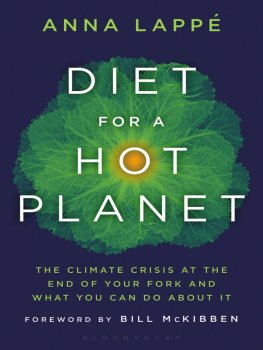
Farm
Nicola Harvey was born in Aotearoa New Zealand, and called Australia home for almost two decades. She has written and edited for magazines and websites including North & South , The Saturday Paper , frieze , T he Listener , BuzzFeed, and the ABC. Nicola has created and produced acclaimed podcast series including Pretty For An Aboriginal and Debutante in collaboration with Nakkiah Lui and Miranda Tapsell, and A Carnivores Crisis with Rachel Khoo. She currently runs her own production company, Pipi Films, from her home office on a farm in Aotearoa. Farm is her first work of non-fiction.
Scribe Publications
1820 Edward St, Brunswick, Victoria 3056, Australia
Published by Scribe 2022
Copyright Nicola Harvey 2022
All rights reserved. Without limiting the rights under copyright reserved above, no part of this publication may be reproduced, stored in or introduced into a retrieval system, or transmitted, in any form or by any means (electronic, mechanical, photocopying, recording or otherwise) without the prior written permission of the publishers of this book.
The moral rights of the author have been asserted.
Scribe acknowledges Australias First Nations peoples as the traditional owners and custodians of this country, and we pay our respects to their elders, past and present.
978 1 922310 54 5 (Australian edition)
978 1 925938 91 3 (ebook)
A catalogue record for this book is available from the National Library of Australia.
scribepublications.com.au
For Pat, my great love
&
For Clara, who fuels my hope
Contents
Preface
Ive been thinking about an artwork that I looked at for a long time when I saw it in an exhibition. Its a tiny tin-and-aluminium sculpture, created by Australian artist Fiona Hall, titled Karra-wari (Pitjantjatjara) / Eucalyptus microtheca / Coolibah tree , 1999. Its part of the series Paradisus Terrestris 198990.
Depending on my mood, the artwork offers either a vision of hope or destruction. A sardine can has its lid rolled back to reveal a low relief sculpture of a male torso, side on, from armpit to groin. Sprouting from the top of the body is a delicate hand-cut tin coolibah tree, a eucalyptus found in western New South Wales where Pat, my husband, is from. The tin can has been cut, ripped, beaten, destroyed, and remade into a thing of startling beauty. The human form is either the potent life source for the tree or the thing buried to give way to nature.
In the eye of the climate change storm, we are all in that position. Are we to reach skyward for something that gives us life or fall beneath the surface, forever?
Introduction
I ate corn chips during my miscarriage. Sitting cross-legged on the shedding cream carpet in front of my double bed as dappled sunlight flowed and receded through the sheer linen IKEA curtains, I sucked the salt and tangy flavouring off each chip and crunched through the waves of pain. Hours later, I curled on the bed and closed my eyes. A rumble of hunger was the only thing cutting through my numbness. Next door, in the spare bedroom, my husband, Pat, lay on the floor, his head propped up on a pillow, listening to Tropical Fuck Storm then You Am I, King Gizzard, Magic Dirt, then someone else playing something else. The hum and patter of voices and guitars soaked through the wall. He slept there, on the floor. What else was there to do but close your eyes and wish it all away?
For almost three weeks, I held what was once a life with a beating heart in my body. During my lunch break one day, I was told by an Irish woman with an ultrasound machine that my baby no longer had a heartbeat. Ill be back in a moment, love, shed said, as I lay there in the orange glow, shielding my eyes from the screen. A second opinion was sought. But it only confirmed the first. For the next three weeks, in an apricot-coloured nook outside an obstetricians office at Sydneys Prince Alfred Hospital, I existed in a liminal zone: I was neither pregnant, like those around me, nor not. I sat for hours, waiting for someone to tell me about a pill or procedure, or to remind me there was no heartbeat. And I was constantly hungry, had been for months; just over three to be exact, since Id learned I was pregnant. For the first time in my life, I had a constant growl of want deep within me, and I satisfied every craving.
When I visited the hospital emergency room for the final time, it was just past 8am on a Monday and the hunger hadnt gone it was my only constant companion. I had asked Pat not to come. The miscarriage was our loss, but it was my burden, and I squashed the grief alone in the time it took a taxi to drive from the hospital to my office at Sydneys Circular Quay. I was at work by ten, quieter, pale. And I started to see fault in everything. What I ate became a source of obsession, and questions about taste and texture were replaced with bigger thoughts about whether I was leeching on the world.
Beneath it all, I was whispering: what did I do to deserve this?
The shared lunch ordered for staff who rarely left their desks was spread on the kitchen table like a perverse offering: a pile of couscous salad on one plate, creamy red cabbage coleslaw on another. Tangy shredded chicken, slow-cooked lamb, buckets of hummus, piles of flat breads a Lebanese-inspired feast for staff who only picked at the food. Half went into the fridge, and then into the rubbish bin the next day. Wasted.
One evening, my dad called to say, You should come home. For more than 17 years I had lived abroad: first Melbourne and then Sydney, with a few years in London between. Australia felt like my home as much as the country I was born in New Zealand (Aotearoa) did. But its also the place that fuelled a rabid ambition, which crumbled that August afternoon as the light was dancing and Magic Dirt was playing. Australia had burned me out. Consumed by to-do lists and outrage, I didnt know to stop when my body needed me to, and so my body did the most callous thing it could it gave up on our baby.
When my dad said come home, you can work on the farm. You and Pat can rear calves, its a good way to start , I didnt know what he was suggesting. All I knew was it would be something different. I spent the first few years of my life on a farm, but despite that and my familys connection to the land my divorced parents have both farmed and come from land-owning farming families I have long embraced the ruralurban stereotype: the city is a place of culture and innovation; rural communities are conservative and culpable for vast amounts of environmental degradation. I had run to the invigorating embrace of the city as soon as I was able.
Pat was also burned out. Bent, exhausted, and pissed off, he agreed to move away from Sydney, his friends, his life for the same reason I did. He needed a reason to stop the 70-hour weeks, the Thursday nights that ended with a beer in front of the computer at 10pm. The Friday nights that ended with him falling asleep on the couch at 8pm. When we first met, he was an open-faced boy in second-hand Levis and a plaid cotton shirt who bounced up gutters and into the nearest open band-room door. Back then he was fuelled by something that we had since squashed in our pursuit of what was it? Money? Security? Accolades?
So, we said yes. To what? Rearing calves was the offer, though we didnt really know what that meant. We told people we were leaving to go cattle farming. To be farmers, food producers. I pictured vegetables in a garden, meat from the farm in the freezer, a life guided by food from the land around me. But I was naive. What I should have asked then was, How do you get closer to your food when the entire food-production system is guided by global commodities?
Next page
